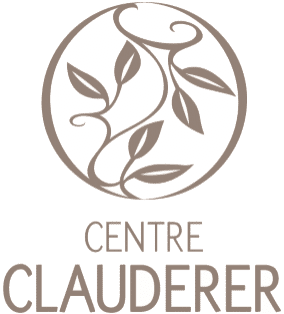At the base of each strand of hair is a vital structure, the hair bulb, the guarantor of your hair's health and growth. This small component underlying the scalp is at the heart of many hair-related issues, from growth and loss to greying. Understanding the role and needs of the hair bulb is essential to understanding hair growth, hair loss and the best ways to maintain it. Find out all you need to know about the hair bulb and its influence on hair.
What is the hair bulb?
The hair bulb is the structure at the base of the hair follicle where the cellular matrix is located, the point of origin of hair growth. This is the enlarged lower part of the hair follicle. Located beneath the scalp, it encompasses the dermal papilla, a structure containing blood vessels that nourish the follicle and transport the nutrients needed for hair growth. The stem cells present in the bulb divide and differentiate to form the hair.
The base of the hair bulb is supplied by a network of small blood vessels. These blood vessels provide nutrients and oxygen necessary to stimulate hair growth and maintain the health of the hair follicle. The nerves around the hair bulb are also involved in regulating hair growth.
The bulb is also home to various glands and structures, such as the sebaceous glands, which produce sebum, an oily substance that lubricates the hair and scalp.
The bulb, with its rich supply of nutrients and stem cells, is the factory where hair is made. Cells are born, multiply, differentiate and become keratinised, forming the hair shaft. The health and vitality of the hair bulb are therefore crucial for the quality and growth of the hair shaft. Any imbalance or damage to the bulb (whether due to genetic, nutritional, hormonal or other factors) will inevitably manifest itself in the quality and health of the hair shaft.
How does the hair life cycle work?
The hair life cycle is intimately linked to the functioning of the bulb. This cycle takes place in three stages, each of which plays an important role in the growth and health of the hair.
- The anagen phase: this is the active growth phase. It is during this period that the cells at the heart of the hair bulb divide rapidly. This proliferation of cells allows the hair to grow at a rate of around 1 cm per month. The vast majority of the hair on our scalp, around 85% to 90%, is in this dynamic phase.
- The catagen phase: this transition phase is much shorter, lasting just a few weeks. During this period, the hair completes its growth and the hair bulb begins to retract, preparing for the resting phase. There is also a gradual reduction in the blood supply to the bulb, a sign that this active phase is coming to an end.
- The telogen phase: this is the resting phase. At the end of this phase, the hair falls out naturally, often during daily activities such as washing or brushing. Once the hair has fallen out, a new hair bulb begins to form, restarting the cycle.
By understanding this process, we understand the importance of the hair bulb in the constant regeneration of our hair and its central role in maintaining hair density and health.
What are the enemies of the hair bulb?
The hair bulb, as the point of origin of hair growth, is exposed to many factors that can compromise its proper functioning or health. The enemies of the hair bulb are varied and often stem from our environment, our habits or our physiology.
- Hormonal factors: hormonal imbalances such as those observed during pregnancy or the menopause, or due to certain pathologies such as polycystic ovarian syndrome, can affect the hair bulb and lead to hair loss.
- Stress: chronic or acute stress can have a direct impact on the hair growth cycle by shortening the anagen phase and precipitating the telogen phase, leading to premature hair loss.
- Poor diet: poor nutrition in essential vitamins, minerals and proteins, such as biotin, iron, zinc or B vitamins, can weaken the hair bulb.
- Aggressive hair treatments: excessive use of chemical treatments such as dyes, perms or straighteners, as well as excessive heat from appliances such as hairdryers or straightening irons, can damage the hair bulb.
- Medicines and treatments: certain drugs, such as those used in chemotherapy, or other drugs such as anticoagulants, beta-blockers or retinoids, can affect the hair bulb.
- Skin disorders: diseases such as psoriasis or seborrhoeic dermatitis or fungal infections can compromise the health of the scalp and, by extension, that of the hair bulb.
- Environmental factors: exposure to pollutants, poor quality water or intense UV rays can damage the hair bulb.
How can I prevent hair loss by looking after the hair bulb?
Preventing hair loss involves paying particular attention to both daily habits and the specific nutritional needs of the hair.
The bulb needs a healthy environment to ensure optimal hair growth.
First of all, it is crucial to adopt a balanced, nutrient-rich diet essential to hair growth. Vitamins A, B, C and E, as well as minerals such as iron, zinc and selenium, play a vital role in supporting the hair bulb.
The way we treat our hair on a daily basis also has a direct impact on the health of the hair bulb. It is therefore advisable to avoid aggressive hair treatments wherever possible, such as frequent dyeing, excessive use of heated appliances or hairstyles that exert continuous traction on the scalp, such as very tight ponytails or braids.
Gently massaging the scalp can help stimulate blood circulation, which helps deliver nutrients to the bulb. The use of gentle shampoos and hair products is also recommended to avoid damaging the scalp.
In the event of abnormal or persistent hair loss, it is essential to carry out a diagnosis so that you can benefit from appropriate treatment. Centre Clauderer carries out a complete, personalised hair and scalp analysis in Paris or remotely. After examining the hair bulb under a microscope, a report is drawn up and recommendations made. Depending on your needs, Centre Clauderer can offer a range of tailored treatments to provide you with a lasting solution and guide you towards healthy, radiant hair. If you are concerned about abnormal or persistent hair loss, don't hesitate to make an appointment with Centre Clauderer.

